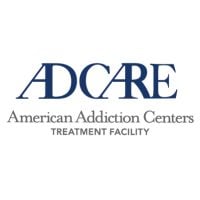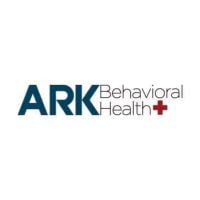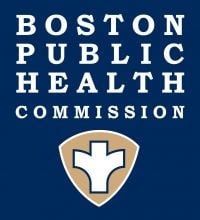The Quincy Center
Drug Rehab Center in Quincy, Massachusetts
The Quincy Center is an accredited 18-bed Addiction Treatment Facility located in Quincy, MA offering a range of level of care for alcohol, opioid addiction and dual diagnosis with traditional treatments, holistic and evidence based therapeutic approaches.
About This Massachusetts Facility
The Quincy Center is a reputable drug treatment facility located in Quincy, Massachusetts. With a focus on treating individuals suffering from alcoholism, opioid addiction, dual diagnosis, and drug addiction, The Quincy Center offers a variety of services to cater to different levels of care. As an accredited facility by JCAHO, individuals can trust in the quality of care provided at The Quincy Center. With 18 beds available, this facility is able to accommodate a considerable number of patients seeking treatment for their addiction. In addition to accepting private health insurance, The Quincy Center also provides aftercare support to ensure long-term recovery for their patients.
The Quincy Center offers a range of treatment services for addiction and substance abuse. Their services include comprehensive drug rehab programs, inpatient and outpatient treatment options, and intensive outpatient treatment for individuals who require more flexibility in their schedules. The facility also provides dual-diagnosis treatment for those who are struggling with a co-occurring mental health disorder alongside their addiction. Additionally, The Quincy Center offers intervention services to help families and loved ones address their concerns and encourage their loved ones to seek help. With a focus on personalized care and a multidisciplinary approach, The Quincy Center strives to provide effective and holistic treatment to individuals battling addiction.
Genders
Ages
Modality
Additional
Accreditations

JCAHO
Conditions and Issues Treated
Opioid Addiction Treatment supports people recovering from addiction to prescription drugs as well as illegal opioids. This is a hospital-based or residential treatment. Depending upon one’s age, detox without the appropriate medication may be unpleasant or even dangerous–some get body aches, fever, chills, while others may even have seizures.
Opioid treatment involves medically assisted detox, physical and mental support. Most rehabilitations use an array of treatments to ensure overall wellbeing, such as Medication-assisted therapy (MAT) in which one gets behavioral therapy, medicines, and counseling. A client-centered approach can reduce one’s chances of relapse. Therapists at work with the client to figure out environmental and behavioral triggers, giving them the power to change the patterns.
Levels of Care Offered at The Quincy Center
This center offers a variety of custom treatment tailored to individual recovery. Currently available are Aftercare Support, Drug Rehab, Dual-Diagnosis, Inpatient, Intensive Outpatient, Intervention, Outpatient, Residential, with additional therapies available as listed below.
An inpatient is a person who stays in a hospital or rehab center during treatment. For alcohol- and drug-dependent individuals, inpatient rehabs provide individualized around-the-clock services. Inpatient treatment programs address a person’s unique physical, medical, and psychological needs. A team of experts assess the severity of the addiction and design a highly tailored program. typically, the length of stay in an inpatient facility in Quincy, MA is 30 days. Those with severe addiction may need to stay at the facility for 60 to 90 days.
Daily trips to the hospital that provides the treatment include intensive outpatient services (IOP). IOP in Massachusetts is appropriate for patients in residential recovery facilities that have been diagnosed with addiction. Patients return to their everyday lives gradually, increasing the likeliness of success in treatment.
Outpatient rehabilitation is a treatment that exists if a patient is not checking into The Quincy Center long term. In addition to helping them recover, the patient attends regular therapy sessions and detox and participates in other therapies. However, this is all primarily done from home. As a follow-up to inpatient treatment, outpatient treatment is usually recommended.
After rehabilitation, it helps people return to their everyday lives. It may also be an alternative to inpatient care in some situations. If they cannot leave their jobs, children, or don’t have the money for inpatient care, people can choose this method. Inpatient therapy, however, is the best method and most suggested level of treatment offered by The Quincy Center in recovering from addiction.
Residential treatment programs are those that offer housing and meals in addition to substance abuse treatment. Rehab facilities that offer residential treatment allow patients to focus solely on recovery, in an environment totally separate from their lives. Some rehab centers specialize in short-term residential treatment (a few days to a week or two), while others solely provide treatment on a long-term basis (several weeks to months). Some offer both, and tailor treatment to the patient’s individual requirements.
Intervention services are designed to help loved ones of an individual suffering from alcohol or drug addiction. They aim to help the individual realize that their behavior is causing damage, and external help is crucial to handle their problem efficiently.
Treatment for substance abuse does not cease after an individual successfully completes a detox or rehabilitation program. A vital follow-up treatment service is aftercare support provided to individuals at The Quincy Center in Massachusetts after they attain initial sobriety.
Aftercare support often takes the following forms: 12-Step Programs, Outpatient Treatment Programs, and Support Groups. The most effective aftercare programs are tailored to meet an individual’s specific needs and circumstances.
Therapies & Programs
Individual therapy involves one on one sessions between the patient and the therapist at The Quincy Center. Individual therapy provides patients with a safe environment where they can openly discuss their problems with the therapist. The patients find the therapist as a person who they can trust. It helps them to open up and discuss personal and sensitive issues, which they may not be comfortable discussing in a group setting.
Individual therapy aims to identify the core issues that would have led the patient to substance abuse and address the root cause effectively. The therapist can develop patient-specific customized solutions through individual therapy, which aids speedier recovery.
Addiction and alcoholism always harm an addict’s relationships with others and none more than relationships with a spouse or partner. Couples therapy is an essential part of restoring trust and good communication to intimate relationships harmed by addiction. Couples therapy by The Quincy Center helps repair the damage done to these important relationships.
Recovery can be more effective if the entire family’s involved. Family therapy hosted by The Quincy Center brings in the addict’s family to explore genetic factors. It gives loved ones the tools for dealing with addiction and its underlying mental issues. It is a recommended step in helping addicts adapt to sober living.
Trauma is one of the most common causes of psychological disorders. It’s often found in people with addiction diagnoses. Trauma therapy addresses this by examining the emotions and thoughts people have formed due to past traumas. Traumas are complex but trauma therapy can reduce their ability to contribute to addictive behaviors.
Dialectical Behavioral Therapy is a form of Cognitive Behavioral Therapy. It is designed for those who are prone to self-harm and suicidal behaviors. The Quincy Center aims to help patients understand the relationship between their thoughts, feeling and behaviors and it gives them the tools to make a change. It is effective for those whose addictions and behaviors stem from extreme mental health issues.
Rehabilitation is not just limited to bringing an individual out of addiction and achieving sobriety. It is considered complete only when an individual starts leading a normal and balanced life. Life skill therapy focuses on the various skills that helps an individual to lead a normal life. Patients often do not take care of themselves, struggle professionally and withdraw from social interaction due to the physical and emotional disturbances caused by addiction.
Life skills therapy helps them to improve various personal, professional and social skills such as cooking healthy meals, maintaining proper hygiene, budgeting, decision making, time management, regulation of emotions and resolving the interpersonal conflicts effectively.
Patient Experience
Creative Arts
It is believed that enhancing creativity and developing skills related to it can help people with addiction recover faster. Activities such as painting, writing, acting, and dancing are considered therapeutic and hosted and managed by The Quincy Center in Quincy, Massachusetts. They become outlets for patients to blow off steam, channel their emotions, and express their thoughts.Experiential Therapy at The Quincy Center
Experiential therapy involves recreating or creating new experiences for the patient. Many people struggled with past issues such as memories or trauma. By creating a new experience, it allows people to work through the issues associated with those moments in a new experience. This can give them a new measure of control and can help them role play a new scenario. That can help push addiction into their past and help them begin the healing process.
Payment Options Accepted
For specific insurance or payment methods please contact us.
Is your insurance accepted?
Ask an expert, call (888) 674-0062
Additional Details
Specifics, location, and helpful extra information.
Quincy, Massachusetts 02169 Phone Number(617) 801-5120 Meta DetailsUpdated November 25, 2023
Staff Verified
Patient Reviews
There are no reviews yet. Be the first one to write one.
Quincy, Massachusetts Addiction Information
Massachusetts has one of the highest rates of drug abuse in the country. More than half a million Massachusetts residents abuse alcohol while more than 1.5 million use illegal drugs each year. This drug and alcohol usage is the cause of over 8% of all deaths in the state. In 2017, Massachusetts ranked in the top 10 of the states with the highest opioid overdose rates.
More than 10% of Quincy, MA residents have used illicit drugs. Specifically, 20.4% of those aged 18 to 25 years old living in Quincy have used marijuana and cocaine at least once in their lifetime, while 4.2% have used heroin. The good news is that there are many drug treatment facilities in Quincy, MA, that can help people recover from addiction and abuse.
Treatment in Nearby Cities
- Leominster, MA (44.5 mi.)
- Centerville, MA (51.7 mi.)
- Lincolnton, MA (722.1 mi.)
- Melrose, MA (15.8 mi.)
- Hyannis, MA (53.9 mi.)
Centers near The Quincy Center
The facility name, logo and brand are the property and registered trademarks of The Quincy Center, and are being used for identification and informational purposes only. Use of these names, logos and brands shall not imply endorsement. RehabNow.org is not affiliated with or sponsored by The Quincy Center.






